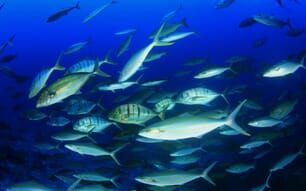The primary purpose of publishing this report is to highlight the activity of the European processing industry and its reliance on imported raw materials.
Despite important changes made on the study during the last years, it consistently reflects the fact that the processing industry is reliant on stable supply of raw materials from a wide range of fish and seafood species.
The report shows the recent trends in supplies of many whitefish/finfish species, tuna, herring, mackerel, surimi, and some freshwater fish species and for the first time data for shrimps and cephalopods. Some of the key findings of this year are as follows:
- Total market supply has stayed static at 14.7 million tonnes
- Imported share has grown to 9.548 million tonnes and equals 65 per cent
- Whitefish import dependency has stayed level at 89 per cent for wild capture and > 91 per cent including aquaculture products
- EU catches estimated to have reduced to 4.821 million tonnes (inc. nonfood use)
- Exports have moved down by 13.7 per cent to 1.870 million tonnes
- Cod is number one whitefish species moving above one million tonnes
- Alaska pollock back to number two with growth of 18 per cent
- Global quota trends are positive
The findings confirm that imports are the backbone of the EU processing industry. In the context of a complex regulatory environment with direct and potentially significant relevance to the sector, AIPCE-CEP continues its stance of being actively engaged using its expertise and technical competences to provide coherent business feedback and suggestions to the members of the European Parliament, the EU Commission and EU member states. A successful market for fish and seafood in the EU is best served by having a vibrant and sustainable fishing sector in the EU and in parallel to allowing the use of well managed resources from all around the world.


